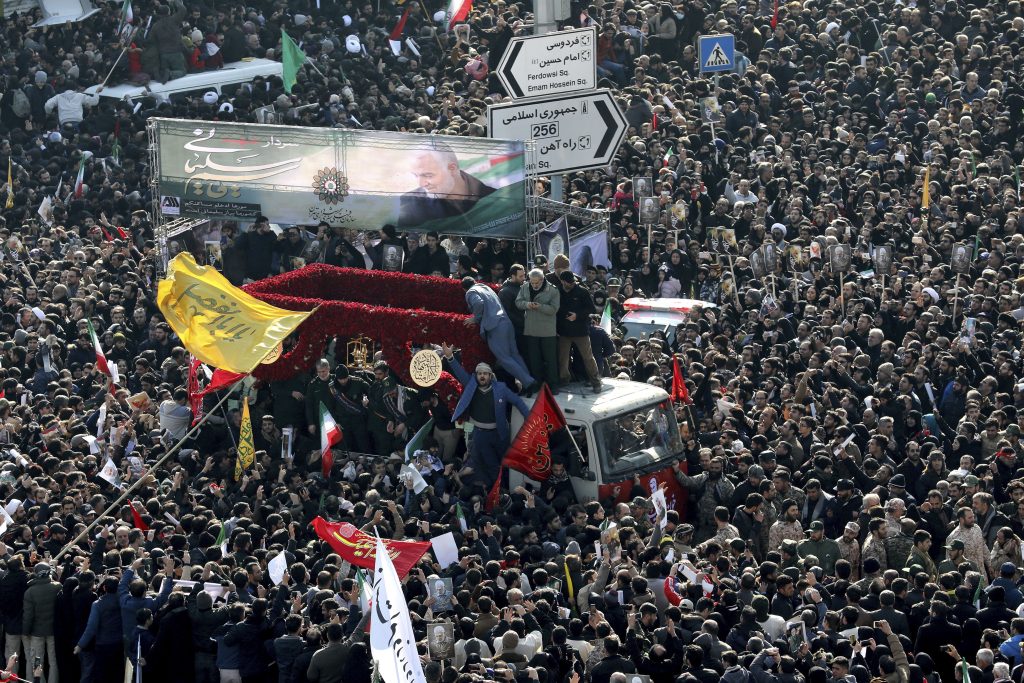
Iran‘s proxy allies may step up in retaliation against the U.S. for the killing of Iranian military commander Qasem Soleimani, a former American ambassador warned Tuesday.
Tensions between Washington and Tehran escalated after a U.S. airstrike killed the Iranian general in Baghdad last Friday. Soleimani was a top military commander who led Iran’s Islamic Revolutionary Guard Quds Force, the country’s special-operations forces abroad.
He was also an important figure involved in Iran’s many proxy forces around the region, including Iraq, Syria and Lebanon, Syria and Yemen. Tehran has vowed retaliation.
“It’s not only Iran, it’s not only Quds Force,” Gerald Feierstein, who served as U.S. ambassador to Yemen from 2010 to 2013, told CNBC’s “Squawk Box Asia.”
“They have allies, Hezbollah … and other organizations (such as) Kataib Hezbollah in Iraq, the Houthis in Yemen and possibilities outside,” he said. “I don’t think we should only look for Iranian responses in the Middle East.”
Retaliation will come in different ways and different locations, Feierstein predicted.
“The Iranian response, which I think will almost certainly come, could come in many different guises, many different places at any time,” said Feierstein, who is currently a senior vice president at the Middle East Institute. “This is going to keep the world on edge I think, for quite a long period while the Iranians think through their strategy.”
Rodger Shanahan, a research fellow at the Lowy Institute, agreed that Iran’s proxies may act on behalf of the country.
“It has built up over years a range of proxy and allied forces in the region and it could use those to conduct the response against the United States to have a degree of separation between Tehran and the action that is taken,” he said.
Impact of Soleimani’s death
Both men also weighed in on the impact of Soleimani’s death on Iran.
Shanahan said the commander’s personal connections “can’t be easily replicated” — but he doesn’t see “much of a lag” in the Quds Force’s operations. He pointed out that Brigadier General Esmail Ghaani was promoted “very shortly” after Soleimani’s killing.
And contrary to some experts who described Soleimani as a “puppet master,” Feierstein argued that the Iranian general was “just an instrument” and not the decision-maker in Iran.
“The opportunity to get Qasem Soleimani has been on the table for years,” Feierstein said. “Each time it’s been debated within the national security apparatus here, I think the decision has always been that it’s not worth it, it doesn’t achieve any U.S. goal or objective.”
Soleimani was “an instrument of Iranian state policy,” unlike Osama bin Laden who was the leader of a non-state actor, he said. “Therefore, the way to address this is to address the policymakers in Tehran, and to convince them one way or the other to change the policy.”
Asked whether there’s still scope for a diplomatic discussion between the U.S. and Iran, the ambassador said Washington needs to start taking steps “right now” if it wants to see deescalation and not war.
— CNBC’s Amanda Macias, Joanna Tan, Grace Shao and Natasha Turak contributed to this report.

